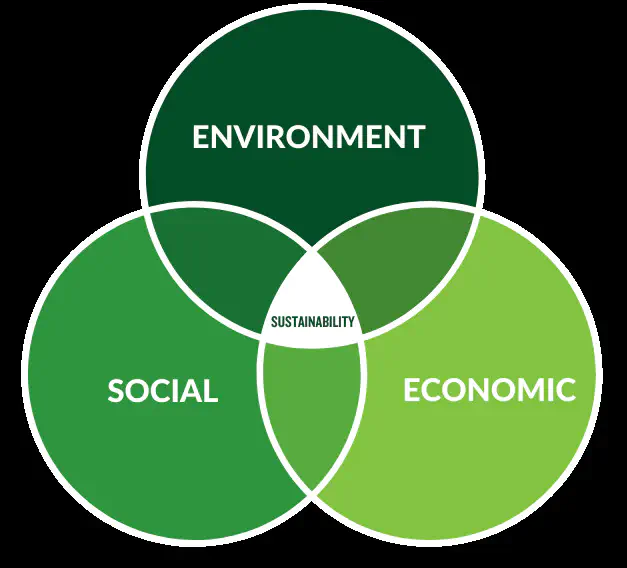Understanding the basics of sustainability - A beginner's guide to the three pillars of sustainability and how they work together.
 Image credit: [agnext.colostate.edu][def]
Image credit: [agnext.colostate.edu][def]
Sustainability is a concept that is becoming increasingly important in today’s world. It refers to the ability of humans to meet their present needs without compromising the ability of future generations to meet their own needs. Sustainability is often broken down into three pillars: environmental, social, and economic. In this blog, we will explore these three pillars and how they work together to create a sustainable future.
The first pillar of sustainability is environmental sustainability. This refers to the ability of the natural environment to support life on Earth. Environmental sustainability involves preserving and protecting the planet’s natural resources, including land, air, water, and biodiversity. This can include reducing greenhouse gas emissions, conserving energy, protecting ecosystems, and reducing waste.
The second pillar of sustainability is social sustainability. This refers to the ability of society to meet the needs of its members, including access to education, healthcare, and basic human rights. Social sustainability involves promoting social justice, equity, and inclusion, and addressing social issues such as poverty, inequality, and discrimination.
The third pillar of sustainability is economic sustainability. This refers to the ability of the economy to provide for the needs of the present and future generations. Economic sustainability involves promoting sustainable economic growth, creating jobs, and providing access to basic needs such as food, water, and shelter. This can include promoting sustainable business practices, reducing waste, and investing in renewable energy sources.
It is important to note that these three pillars of sustainability are interconnected and interdependent. Environmental sustainability is essential for social and economic sustainability, as healthy ecosystems provide the resources needed for human societies and economies to thrive. Social sustainability is important for economic sustainability, as a stable and equitable society provides the foundation for sustainable economic growth. Economic sustainability is important for environmental sustainability, as a sustainable economy can provide the resources needed to invest in environmental conservation and protection.
In conclusion, sustainability is a concept that encompasses environmental, social, and economic sustainability. These three pillars are interconnected and interdependent, and all are essential for creating a sustainable future. By promoting sustainable practices in all aspects of life, we can work towards a more just, equitable, and sustainable world for all.